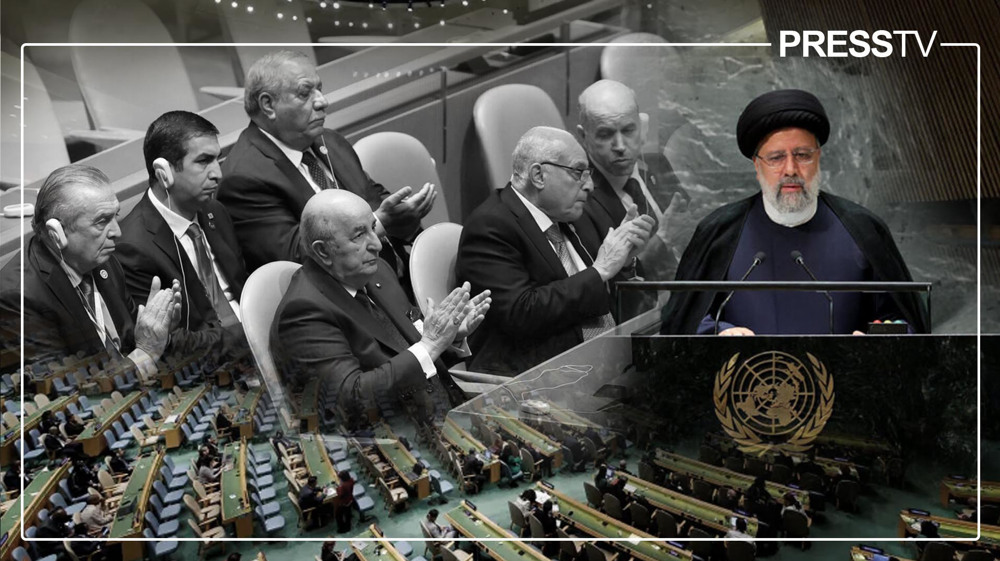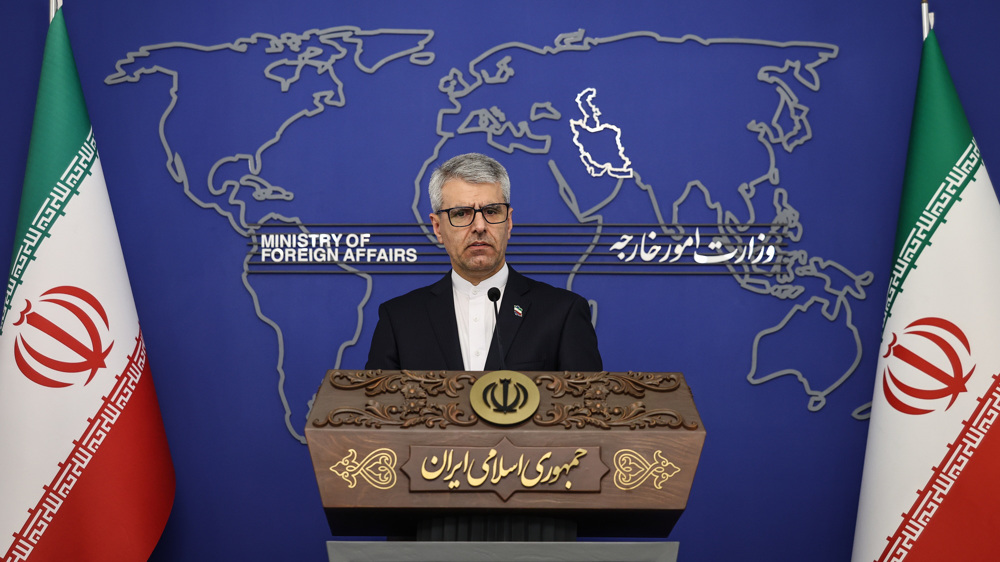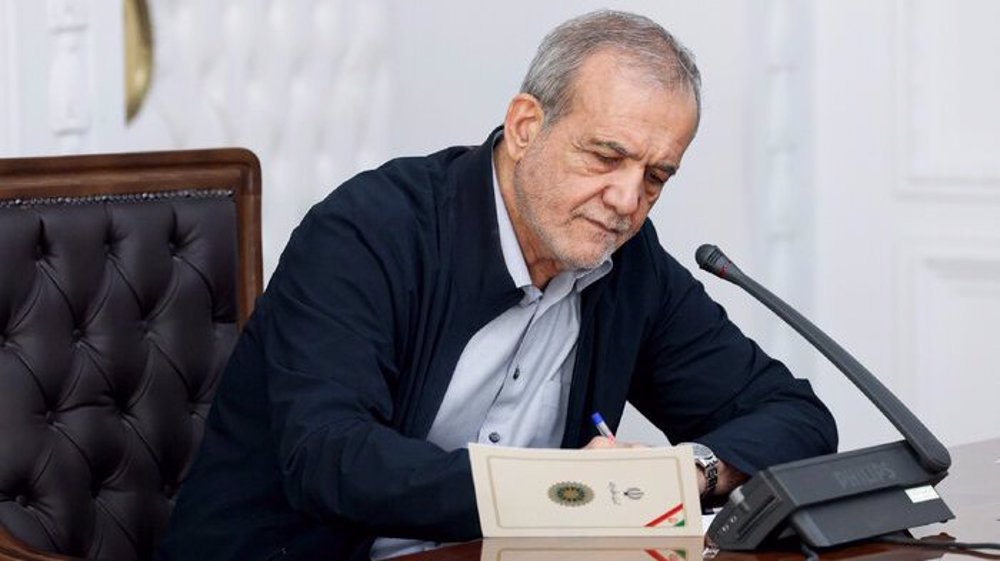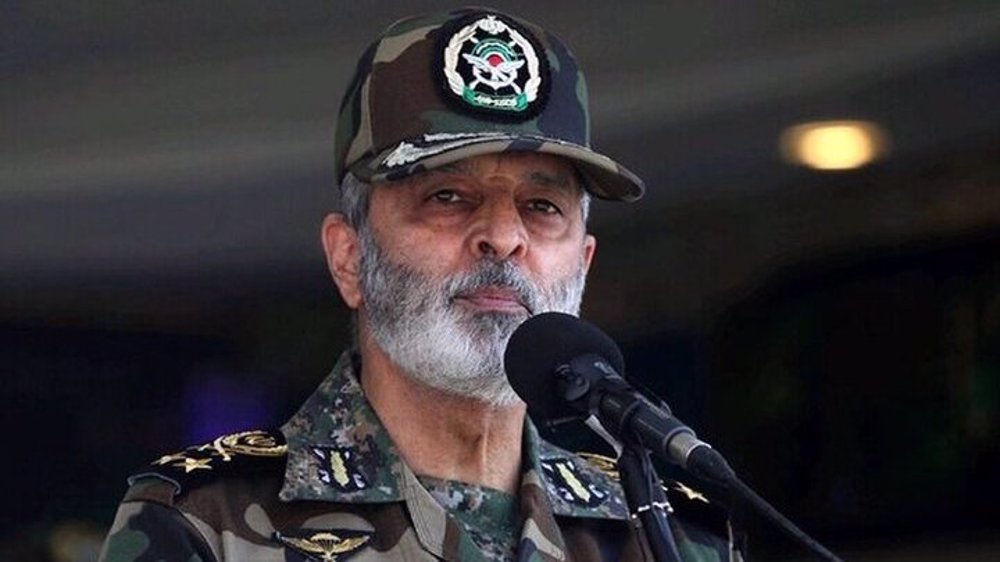How President Raeisi captured world's imagination with historic UNGA speech
By Musa Iqbal
President Ebrahim Raeisi, who tragically passed away in a helicopter accident on Sunday, earned worldwide respect and admiration for his powerful, eloquent, and courageous speeches at international forums, including the United Nations.
From holding aloft a photograph of Iran's top anti-terror commander General Qassem Soleimani at the UN General Assembly summit in September 2022 to raising a copy of the Holy Quran in his hand exactly a year later, he never minced words and always defended the truth against falsehood.
In his speech to the UN General Assembly in September 2023, described by many international relations pundits as groundbreaking, President Raeisi read the "obituary of US hegemony."
He also criticized Western powers for fanning the flames of Islamophobia, especially following the incidents of Quran burnings in several European countries.
At the height of Islamophobic acts in Western countries where the holy book of Muslims was subjected to countless acts of sacrilege, President Raeisi emerged as a beacon of faith at the UN. pic.twitter.com/GVqgYCwDsI
— Press TV 🔻 (@PressTV) May 20, 2024
"This shall never burn. It's eternal," the former Iranian president asserted. These words became immortal and will always remain etched in the pages of history.
The thunderous speech came weeks before the Palestinian resistance shocked the world with the heroic Operation Al-Aqsa Storm, rattling the illegitimate regime in Tel Aviv.
Even before the events of October 7, President Raeisi was a vocal supporter of the oppressed Palestinians and opponent of the Western so-called “rules-based order” that serves imperialist interests by subjugating or destroying anything in its path.
Following President Raeisi’s UNGA speech, Press TV website launched a social media campaign with the hashtag #ItShallNeverBurn, which has been trending worldwide in recent days. https://t.co/RgEeVb1pw3
— Press TV 🔻 (@PressTV) September 25, 2023
His iconic speech at the UN General Assembly captured the essence of Iran’s position on Western imperialism and the changing dynamics of global geopolitics while strongly defending Islamic values.
It is critical to understand the context of this historic speech that captured the imagination of the whole world.
Leading up to the UNGA session last year were a series of geopolitical events that demonstrated the serious decline and decay of US Hegemony worldwide.
The two-decade illegal invasion and occupation of Afghanistan resulted in a humiliating American retreat after the dramatic return of the Taliban.
The US proxy war against Russia through Ukrainian forces further weakened the country's position, backfiring and creating an even more independent Russia that is no longer tied to Western machinations.
The outright megalomaniacal presidency of Donald Trump irreversibly damaged the trust of other countries in the US. Trump was replaced by Joe Biden, who turned out to be no different. During his presidency, the decline and fall of US hegemony became official.
While the US was experiencing humiliation on every front, Iran under President Raeisi was building its profile as an emerging global power that commands respect.
President Raeisi's emphasis on de-linking national interests from the West and building self-reliance and closer ties with neighboring and friendly countries paid off as Iran gained membership in powerful world forums.
His pragmatic foreign policy opened doors for Iran’s neighbors to partner on lucrative economic projects, connecting the region without relying on predatory US capitalists and their parasitic loans.
✍️ Viewpoint - President Raeisi’s UN speech in which he denounced the desecration of the Holy Quran and called out the hypocrisy of the West, inspired the Press TV social media campaign that has been trending globally.
— Press TV 🔻 (@PressTV) September 30, 2023
By @decolonialmost1https://t.co/iQhGHAvKXc
This resulted in Iran joining two powerful alliances - the Shanghai Cooperation Organization (SCO) and BRICS (Brazil, Russia, India, China, South Africa).
While the decades-long US policy of warmongering was backfiring, Iran’s potential was being cultivated through President Raeisi’s brilliant vision, catapulting the Islamic Republic onto the world stage.
The UNGA speech and President Raeisi’s reading of the obituary of US hegemony perfectly captured the moment.
President Raeisi did not mince words. Citing the failures of decades of American imperialism, the late president asserted that the "equation of Western domination does not work for the world anymore.”
He added that the "old liberal order that used to serve the interests of imperialists and capitalists has been brushed aside.”
President Raeisi highlighted Iran’s progress domestically and internationally, insisting that a justice-based framework and mutual cooperation are the only way forward, not domination by arrogant Western powers.
“Through mutual political trust, economic cooperation, and indigenous security measures, the goals of regional partners can be achieved more easily," he said.
Raeisi also condemned the US-backed deadly riots in Iran in 2022, congratulating the country on foiling the psychological warfare and standing by Islamic and Iranian values as well as the Islamic Revolution.
The Iranian president further pointed to American hypocrisy by highlighting rampant attacks on women in the US, which is known to have the highest number of incarcerated women in the world.
He firmly declared that Iran has the “biggest role in unmasking the imperialists,” condemning the US for its constant role in fomenting chaos worldwide—from coups to the war in Ukraine—and even brought up the JCPOA nuclear deal that Trump sabotaged.
“I repeat, they are the past. We are the future," he said.
The timing of President Raeisi’s speech at the UN General Assembly could not have been better.
The UNGA was in danger of being manipulated by America and its puppet agents to draw support for their failing war against Russia in Ukraine.
Support for Ukraine was at an all-time low, with Ukraine being denied access to NATO earlier in the year. Russian advances were slow but steady, and despite receiving billions of dollars in armaments and Western intelligence, Ukraine was facing defeat.
President Raeisi’s condemnation of American imperialism stole the limelight from desperate war profiteers in Washington looking to unite more allies around Ukraine. He stressed multipolarity, respect for sovereignty, and moving away from a system of hegemonic domination.
But President Raeisi did not stop there.
He also used the historical moment to exalt the Holy Quran, to remind the world of the message of Quran, which was under attack in several Western countries.
Numerous cases of Quran burnings were reported across Western countries at the time, particularly in Europe, and were defended by the governments.
Countries such as France were outright outlawing the hijab, and for decades these countries have joined the United States in plundering West Asia and Africa, where large populations of Muslims were subjected to criminal violence and subjugation for capitalist profits.
President Raeisi demonstrated that the West’s obsession with “free speech” was a blanket for its racist and Islamophobic ideology that it wished to impose on the rest of the world.
Raising the Holy Quran above his head, Raeisi announced that the holy Muslim book never burns but is eternal.
"It shall never burn. It is eternal. It is everlasting. When the earth itself is gone, the Quran remains. The fire of insults and falsehood will never distort the truth in this book," he asserted.
“What defines humanity and elevates human values better than God Almighty's word?”
President Raeisi questioned the European partners of Western imperialism, who, in their fervent defense of so-called free speech and human values, hypocritically dehumanize Muslims and other minorities.
The image of him raising the Holy Quran while standing before the captivated audience of world leaders at the UNGA created an immortal and unforgettable image.
Exposing the parasitic nature of American imperialism while condemning a hegemonic world order, President Raeisi demonstrated the political and moral decay that had set the world on a course for destruction.
Denouncing imperialist world decay and promoting peace through mutual cooperation and multipolarity, all while defending and embracing the Holy Quran, President Raeisi solidified his legacy and marked the end of US hegemony.
The monumental shift in geopolitics during President Raeisi’s short but powerful tenure paved the way for an emerging and resilient Islamic Republic of Iran, heralding a new era for a world that has long resided under the socio-political decay of Western liberalism.
President Raeisi may no longer be with us physically, but his illustrious legacy will serve as a source of inspiration for world leaders for centuries to come.
Musa Iqbal is a Boston-based researcher and writer focused on US domestic and foreign policy.
(The views expressed in this article do not necessarily reflect those of Press TV.)
US boat strike kills another person in eastern Pacific
VIDEO | Press TV's news headlines
Pro-Israel group names Tucker Carlson ‘Antisemite of the Year’ over genocide criticism
Sudan’s PM urges UNSC to endorse initiative to end war
Palestinian women beaten, humiliated in Israeli prison: Rights group
Explainer:15 seconds that save lives: Inside Iran’s world-first cancer surgery breakthrough
VIDEO | London Jewish bloc holds Hanukkah action for Palestinian liberation
Israel kills two Palestinians in Gaza City amid repeated ceasefire violations










 This makes it easy to access the Press TV website
This makes it easy to access the Press TV website